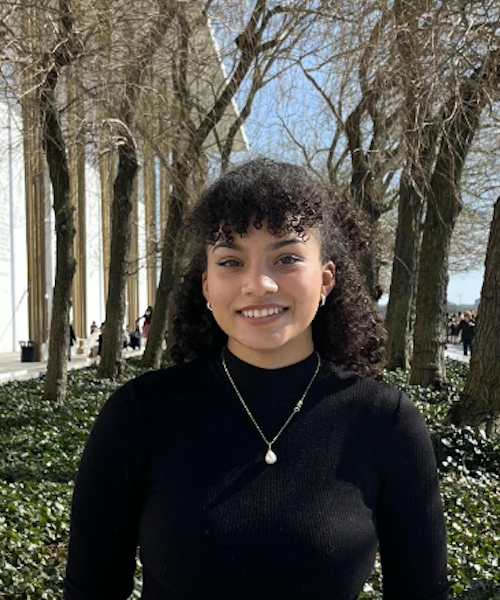
The Value of Different Points of View
Angela Hayes | 2022年12月19日
响应: Georgetown Students Share Thoughts on Student Dialogue Experience with Peking University
Miles McInerney
注:中英文网站上发表的学生日志均为英文。
During summer 2022, I completed a two-week study trip around Viti Levu, Fiji, to research China’s foreign direct investment in the island. My trip was a case study on one of China’s approaches to development. A few months later, I was given the opportunity to participate in the U.S.-China Student Dialogue on the future of global development. I applied what I had learned on my study trip to converse and debate topics with my peers from Peking University. The opportunity was unique. I had concrete examples to draw from to frame my thinking. My questions were more informed, and the conversation more meaningful because I had seen China’s development and foreign investment strategy implemented in Fiji, including support for hospitals and schools.
Participating in the U.S.-China Student Dialogue contributed to building a bilateral understanding of the concept of global development, the intricacies of the Global Development Index, and how China and the United States could and should work together to accomplish development goals as global leaders. While our discussions highlighted the difference between the U.S. and Chinese approaches to international development and foreign aid, they also reinforced our similarities. We need to accept greater responsibility in addressing the development needs of other countries as collective leaders and working together.
The assigned readings were focused and contributed to understanding the three theme topics: Sustainability Goals and Poverty Alleviation, China’s Development Initiative and Clean Energy, and the U.S. Approach to Development and the Challenges of Natural Disasters. The UN-issued Sustainable Development Goals and readings on U.S. and Chinese development initiatives were neutral and unbiased towards one nation or the other. They served as a primer on the themes, and I will refer to these in further coursework.
I found the opinions and conversations between Georgetown University and Peking University students open, constructive, and respectful, even when debating. Participants gave their views and weren’t afraid to disagree when faced with opposing or controversial statements. Throughout the three sessions, participants became both more comfortable. The conversations flowed better as there was familiarity among participants in the break-out sessions. Unexpectedly, some Peking University students were from other Asian countries, such as Singapore and Thailand. It was interesting to learn about the perspectives these students held and how they viewed the American and Chinese initiatives in contrast to the approaches taken by their home countries. These weren’t perspectives I had expected to hear, but they made the conversation richer and more interesting.
While all development topics were not discussed equally, an overwhelming emphasis was placed on how both nations needed to show leadership and work together. Despite recent increased tensions between the United States and China, future leaders must work together to build understanding and relationships.
Given the pandemic, which impacted most international student exchange programs, opportunities such as the U.S.-China Student Dialogue provide much-needed bilateral interactions among peers from different countries and universities. In addition, I hope some of us may contribute to our respective countries' development initiatives once we complete our education.
Miles McInerney (SFS‘25) is a sophomore in the School of Foreign Service majoring in regional and comparative studies and minoring in Chinese.

Angela Hayes | 2022年12月19日

Hanh Duong | 2022年12月19日

Will Foster | 2022年12月19日

John Williams | 2022年12月19日

Ignacio Albe | 2022年12月18日

Margaret Lin | 2022年12月18日

Amisha Gupta | 2022年12月18日

Bailey Brya | 2022年12月18日

Jasmine Terry | 2022年12月18日

Ameena Razzaque | 2022年12月17日